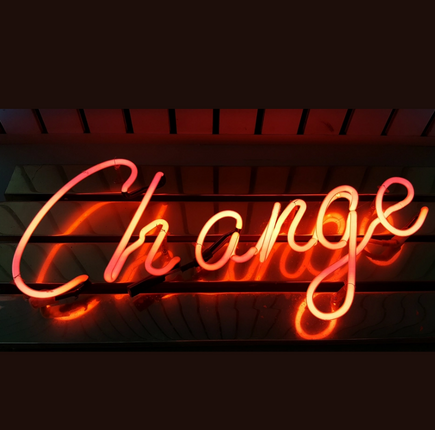Breaking Deeply Embedded Habits
Stephen R. Covey
3rd January 2023
- 3 min read

Well-intentioned resolutions will fall flat in the face of stiff restraining forces without character and social reinforcements.
Every organization and individual struggles to gain and maintain alignment with core values, ethics, and principles. Whatever our professed personal and organizational beliefs, we all face restraining forces, opposition, and challenges – and these sometimes cause us to do things that are contrary to our stated missions, intentions, and resolutions. We may think that we can change deeply embedded habits and patterns simply by making new resolutions or goals only to find that old habits die hard and that in spite of good intentions and social promises, familiar patterns carry over from year to year.
We often make two mistakes with regard to New Year’s resolutions:
First, we don’t have a clear knowledge of who we are. Hence, our habits become our identity, and to resolve to change a habit is to threaten our security. We fail to see that we are not our habits. We can make and break our habits. We need not be a victim of conditions or conditioning. We can write our own script, choose our course, and control our own destiny.
Second, we don’t have a clear picture of where we want to go; therefore, our resolves are easily uprooted, and we then get discouraged and give up. Replacing a deeply imbedded bad habit with a good one involves much more than being temporarily “psyched up” over some simplistic success formula, such as “think positively” or “try harder.” It takes deep understanding of self and of the principles and processes of growth and change. These include assessment, commitment, feedback, follow-through.
We will soon break our resolutions if we don’t regularly report our progress to somebody and get objective feedback on our performance. Accountability breeds response-ability. Commitment and involvement produce change. In training executives, we use a step-by-step, natural, progressive, sequential approach to change. In fact, we require executives to set goals and make commitments up front, teach and apply the material each month, and return and report their progress to each other.
If you want to overcome the pull of the past – those powerful restraining forces of habit, custom, and culture – to bring about desired change, count the costs and rally the necessary resources. In the space program, we see that tremendous thrust is needed to clear the powerful pull of the earth’s gravity. So it is with breaking old habits.
Breaking deeply imbedded habits such as procrastinating, criticizing, overeating, or oversleeping involves more than a little wishing and willpower. Often our own resolve is not enough. We need reinforcing relationships, people, and programs that hold us accountable and responsible.
Remember: response-ability is the ability to choose our response to any circumstance or condition. When we are response-able, our commitment becomes more powerful than our moods or circumstances, and we keep the promises and resolutions we make. For example, if we put mind over mattress and arise early in the morning, we will earn our first victory of the day (the daily private victory) and gain a certain sense of self-mastery. We can then move on to more public victories. And as we deal well with each new challenge, we unleash within ourselves a fresh capacity to soar to new heights.





